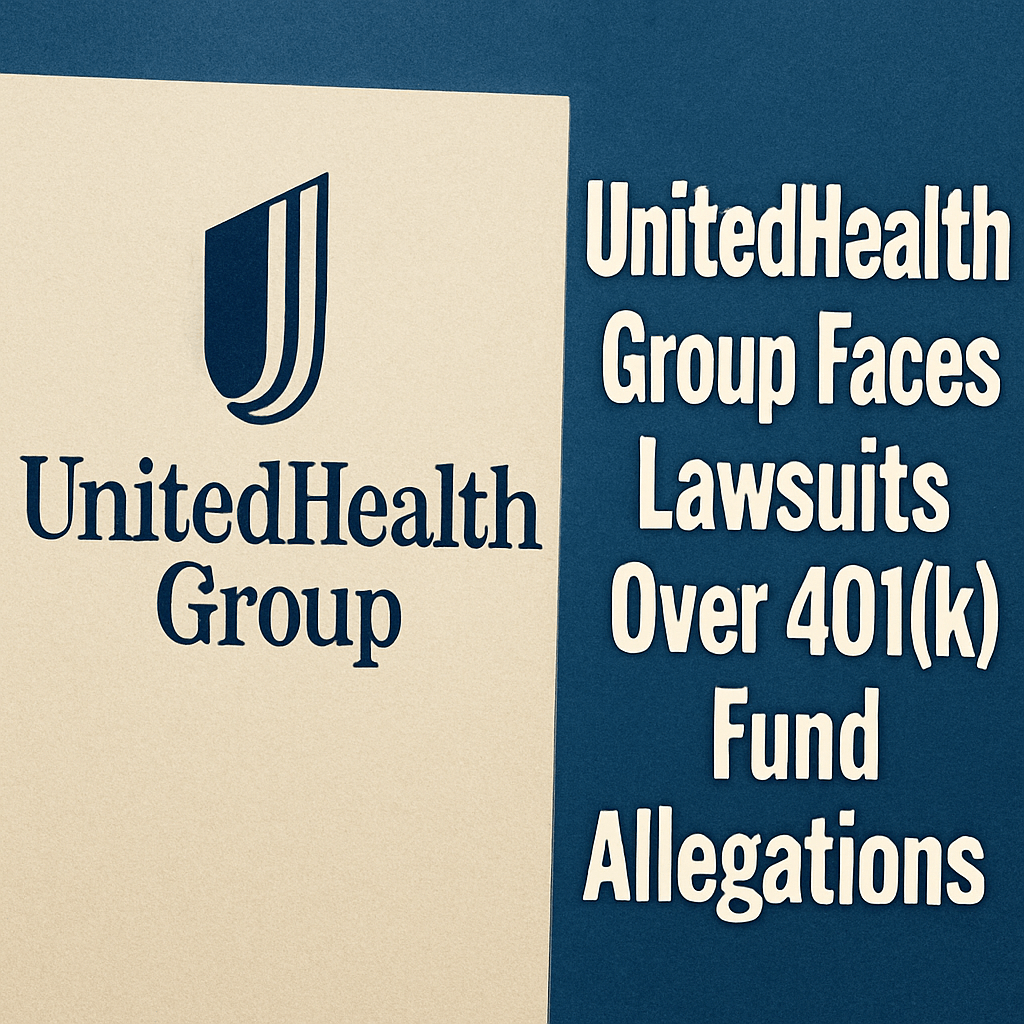UnitedHealth Group Faces Lawsuits Over 401(k) Fund Allegations

UnitedHealth Group (UHG), the largest health insurer in the United States, is facing serious allegations as a result of a federal lawsuit claiming that it improperly utilized employees’ 401(k) funds to reduce its own contributions. This lawsuit, filed in Minnesota, is seeking class-action status and adds to the mounting legal challenges confronting the company.
Details of the Lawsuit
The lawsuit asserts that UHG has been holding onto the 401(k) contributions of employees who left the company and utilized these forfeited amounts to lower its own financial obligations regarding 401(k) contributions. The plaintiffs argue that this practice constitutes a breach of UHG’s fiduciary duty, a legal obligation to act in the best interests of plan participants, which include both current and former employees.
Operational Background of UHG’s 401(k) Plan
UHG operates a traditional corporate 401(k) plan with significant contributions. According to company reports, UHG contributed up to 4.5% of employees’ compensation to their retirement funds, contingent upon meeting certain employment conditions. However, if an employee departs from the firm before completing two years, they forfeit the matching contributions made by UHG. This practice has reportedly led to UHG utilizing upwards of $19 million in forfeited funds from 2019 to 2023 to offset its own contributions instead of investing those funds back into the 401(k) plan.
Legal Implications Under ERISA
The plaintiffs allege that UHG’s actions violate the Employee Retirement Income Security Act (ERISA), a federal law that sets standards for pension and health plans in private industry. ERISA mandates that fiduciaries manage a retirement plan solely in the interest of the participants and their beneficiaries. The lawsuit highlights that a “prudent fiduciary” would have prioritized reducing administrative costs for 401(k) participants by using these forfeited funds, rather than diverting them to meet corporate expenses.
Quote from the lawsuit: “A prudent fiduciary in like circumstances would have defrayed expenses to the Plan’s participants rather than defray costs to the employer.”
UHG’s Response and Previous Legal Challenges
In response to the allegations, a UHG spokesperson has asserted that the company’s 401(k) plan fiduciaries have always acted in compliance with ERISA and deny any wrongdoing. The company is expected to move for dismissal of the claims as early as possible.
This lawsuit is not UHG’s first encounter with litigation related to its 401(k) offerings. Last year, the company settled a separate lawsuit for $69 million, which involved claims regarding underperformance of funds within its retirement plan.
Other Ongoing Legal Issues
In addition to the 401(k) allegations, UHG is currently contending with multiple lawsuits relating to its health care practices. Notably:
- CalPERS Lawsuit: The California Public Employees’ Retirement System (CalPERS) has filed a lawsuit against UHG, alleging that the company illegally “upcodes” treatments in its Medicare Advantage plans, which could misrepresent the health status of patients to receive higher payments from the government, marking this as a potential fraud case currently under federal investigation.
- AI-Related Allegations: Families of patients who have died are alleging that UHG used an AI algorithm to deny necessary care, raising ethical concerns about how technology is applied in decision-making processes in healthcare.
- Shareholder Lawsuit: Shareholders have also initiated lawsuits in connection with how UHG managed the response to the death of CEO Brian Thompson, further complicating the corporate landscape for the company.
Conclusion: Impacts on Stakeholders
The ongoing legal challenges pose significant implications not only for UHG’s reputation but also for its financial stability and relationships with employees, shareholders, and regulators. With assets of approximately $22 billion in its 401(k) plan and around 267,000 participants, UHG’s ability to navigate these legal obstacles will be critical in maintaining trust among plan participants and the broader market.
As the situation develops, stakeholders are advised to stay informed and analyze the potential impacts of these lawsuits, especially in light of the increasing scrutiny on health insurers and fiduciary responsibilities.
Source: fortune